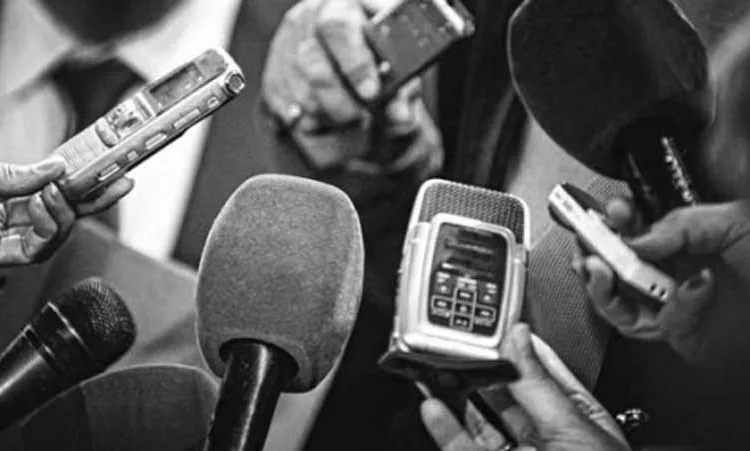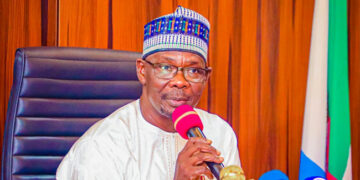I have been reflecting on the challenges faced by essential workers, those individuals who tirelessly contribute to crucial services and remain at the frontline even when the rest of us are at home. Essential workers, often referred to as key or critical workers, encompass a broad spectrum, including military personnel, police officers, doctors, nurses, civil engineers, journalists, researchers, and many more. In this piece, I aim to delve into the crucial functions undertaken by journalists, media activists, and researchers in our society, examining the personal safety and security challenges inherent in their roles and propose effective mitigation strategies.
Journalism, often regarded as ‚The Media‘ in Nigeria, serves as the fourth estate, acting as a watchdog on the government‘s workings. Journalists, responsible for reporting and disseminating news through various mediums, play a pivotal role in shaping public opinion and fostering accountability. The term “Fourth Estate” or “fourth power” refers to the press and news media both in explicit capacity of advocacy and implicit ability to frame political issues. According to Robert McChesney, healthy journalism in a democratic country must provide an opinion of people in power and who wish to be in power, must include a range of opinions and must regard the informational needs of all people.
The field of journalism in Nigeria however, has witnessed a concerning trend of attacks on journalists in a bid to cub free speech. According to the Centre for Journalism Innovation and Development (CJID), there has been 1,034 verified attacks on over 1,000 journalists in Nigeria since 1986. These attacks range from physical assaults to denial of access, unlawful arrests, harassment, and threats.
The impact of these incidents extends beyond the immediate harm caused to journalists. It affects their ability to report independently and accurately, thereby impeding the pillars of good governance and accountability, crucial components for any developing nation‘s progress.
Data reveals a dis increase in attacks, within the period from 2019 to 2023 recording the highest incidents at 597 according to the CJID. In the initial quarter of this year alone, there were documented cases of over 45 assaults on journalists, and notably, 47% of these incidents involved physical attacks, with half of them perpetrated by security personnel. Of the 45 assaulted, 13% were unlawful arrest on unfounded charges, and 13% denial of access. There exists a misguided perception that these attacks are inconsequential or an inherent hazard of the profession, perpetuating a damaging narrative.
Journalists face various risk, which includes being placed under surveillance, threats, and fataly punished for attempting to expose or publicize political corruption. They are at risk of being captured and detained as punishment for criticizing a political regime or a religious ideology, persecuted for insulting those in positions of power, hunted down for images they published, and shot dead or assassinated simply because they were in the wrong place at the wrong time. Their vulnerability is further heightened as they navigate hazardous environments to bring crucial information to the public.
Journalists I have interacted with over the years have all stated how rewarding the profession can be, even though the nature of the job which includes sourcing for genuine content can take its toll. What becomes even more critical is when they are tasked with covering highly sensitive stories without adequate aftercare or protective measures in place.
Addressing this issue requires a comprehensive approach. While numerous Civil Society Organizations (CSOs) and Non-Governmental Organizations (NGOs) primarily concentrate on policy development, training, and enhancing journalists‘ skills, aspects such as personal safety, security, and mental health are frequently neglected.
To bridge this gap, media outlets should develop their safety and security plans, policies, and outline procedures on escalation processes,in addition, furnish journalists operating in challenging environments with security details and the necessary equipment(s). Moreover, it is imperative to institute comprehensive personal safety and security training programs. These programs should encompass a wide range of topics, including but not limited to total awareness, effective risk assessment and management, basic first aid techniques and applications, self-defense strategies for both deterrence and escape, enhancing critical thinking skills, ensuring online safety, understanding precautions for taxi and hotel safety, adept crisis management, dealing with home invasions, and formulating appropriate responses to active shooter situations. Furthermore, personal security trainings that involves understanding the mindset and behaviour of perpetrators in both online and physical realms and also deciphering how online activities can manifest into the physical domain.
By prioritizing the well-being and safety of journalists, we can empower them to fulfil their vital roles without compromising their personal security. This proactive approach is crucial for sustaining a free and accountable press, ultimately contributing to the development of our nation.
In conclusion, the fortitude of a nation lies in the strength of its journalistic integrity. Safeguarding those who safeguard our democracy is not just a moral imperative but a strategic investment in the future of Nigeria. It‘s time to build a shield around our journalists, ensuring they can continue to illuminate the path towards progress and accountability.
– Yesufu is a member of the Guild of Security Industry Professionals (GSIP),United Kingdom.











